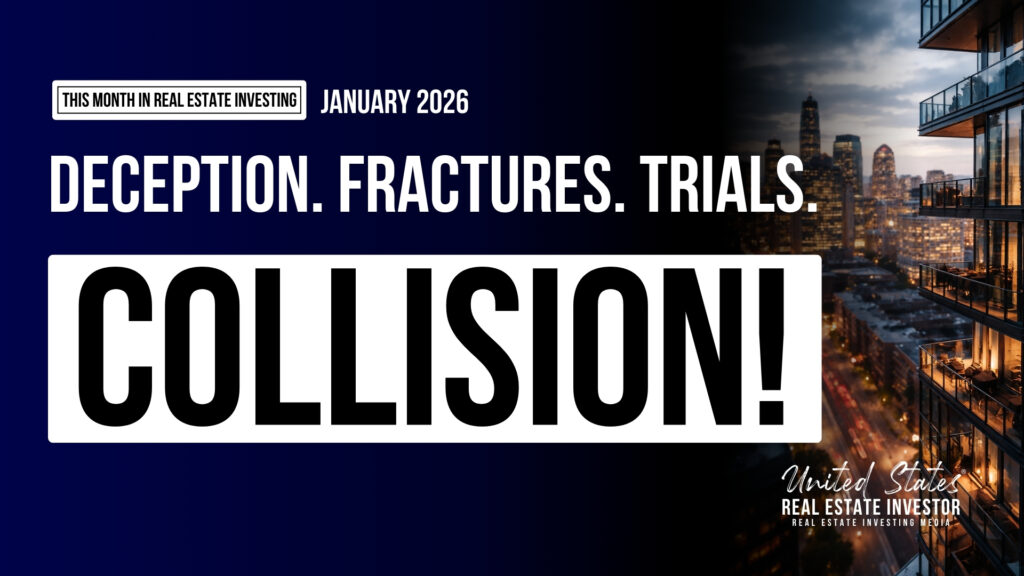Key Takeaways
- China’s potential ban on property pre-sales could trigger a global real estate shakeup, undermining developer liquidity and market confidence.
- The disappearance of pre-sales, which account for much of developers’ working capital, has already led to halved property sales and visible fallout like unfinished buildings.
- The resulting financial stress could reverberate internationally, affecting places like Miami as foreign capital rapidly retreats.
Ripple Effects Loom Over Global Real Estate
China’s looming pre-sales ban leaves the iconic Beijing hutongs in shadow, threatening a seismic shock to real estate worldwide. Developers scramble as pre-sales—their lifeblood—vanish, fueling liquidity crises and collapsing confidence.
Half of property sales gone since 2020, unfinished towers rise from the dust like concrete ghosts, while global financial capitals brace for contagion.
Miami’s skyline could pay the price, as foreign capital drains fast.
Unchecked, this gamble risks industry collapse—those who act now may discover what’s truly at stake.
China’s Pre-Sales Ban: Risks and Global Fallout
As towers rise and haze creeps over Beijing’s ancient hutongs, a seismic shift looms: China is considering a nationwide ban on real estate pre-sales, threatening to upend the bedrock of its property market.
Thousands of miles away, U.S. real estate investors eye these tremors with deep concern, bracing for shockwaves that could ripple across the globe from Tiananmen Square to Wall Street.
For decades, pre-sales have been a critical funding mechanism for Chinese property developers, allowing companies to sell homes before they are built and use these deposits to finance construction.
If this lifeline is cut, a credit crunch could tear through the sector, imperiling firms already battered by plummeting sales and record-high debt.
The government’s plan is clear: end speculation, reduce risk, and reinforce that “houses are for living in, not speculation,” a principle echoed since it first echoed from Zhongnanhai in 2016. Under China’s unique urban system, local governments own all city land, leasing land-use rights to developers and depending on those sales for more than a third of their annual fiscal revenue.
Pre-sales, however, have been the backbone of an industry that now finds itself exposed.
Sales have plunged by 50% since 2020, according to the International Monetary Fund, and even top 100 developers have watched revenues shrink by 3.5%.
Debt levels remain staggering, haunting the cityscape from Lujiazui’s glass towers to the outskirts of Wuhan.
In the shadow of Evergrande’s collapse and under the scrutiny imposed by the “three red lines” policy, developers struggle to refinance operations and keep projects alive.
Consumers, once lured by the promise of ever-rising values from Shanghai’s Bund to the leafy lanes of Chengdu, are now wary.
Confidence has withered amid delays, unfinished buildings, and falling prices.
Yet the government remains determined to prevent further deterioration by experimenting with both carrot and stick.
Policies include reduced mortgage rates, lower down payment thresholds, and eased purchasing restrictions.
At the same time, Beijing supports vast urban renewal campaigns—modernizing dilapidated housing, transforming urban villages, and reconfiguring former hutongs into resident-friendly spaces.
But the potential loss of pre-sales injects acute danger.
Developers face an immediate liquidity crunch, unable to access funds until after projects are completed.
Traditional business models that once fueled China’s real estate boom may crumble, leaving companies scrambling to adapt or exit the market altogether.
Global implications are vast.
International investors, from London skyscrapers to Miami condos, rely on the stability of China’s property giants, whose failures could ignite contagion.
Foreign capital and confidence have already begun to falter.
Should full-scale market turmoil spread from Guangzhou’s gleaming developments to rural provinces, volatility will surge in financial centers worldwide.
Price controls have long been a Band-Aid against collapse, but the magnitude of structural reform now under discussion threatens to expose underlying weaknesses.
Urban renewal programs, while ambitious, cannot offset a systemic credit crunch alone.
Failure to manage the transition risks massive job losses, incomplete projects, and an erosion of wealth for millions who wagered their savings on “sky towers” dotting the skyline.
This is no mere policy tweak.
It is a historic gamble, echoing across China’s storied landmarks, forcing developers, investors, and the government to the edge.
The world watches, nervously, as one of the largest real estate experiments in history hangs in the balance.
Assessment
Dark clouds are building over Shanghai’s iconic Bund, as China seriously considers banning property pre-sales—a move that could send ripples through global real estate markets, from Beijing all the way to Boston.
For American investors, it’s time to pay attention: we could soon see frozen capital, falling property values, and construction grinding to a halt.
Every jolt in China’s real estate core has the potential to shake U.S. investment portfolios—pushing both developers and investors to a tipping point.
Ignoring these warning signs now could leave you far more exposed than you realize.
Don’t sit on the sidelines; keep a close eye on China’s policy decisions and reassess your real estate strategies before Wall Street feels the aftershock.

























5 Responses
Is Chinas pre-sale ban really a risk, or just a wake-up call for global developers to rethink their strategies? #FoodForThought
Ban on pre-sales in China? Crazy! But maybe its time we reconsider our over-reliance on the Chinese market. Just saying! 🤷♂️
Hmm, banning pre-sales might actually balance the market. What if this shakes things up for the better? Just food for thought, guys. 🤔💭
Pre-sale ban? Sounds like Chinas fueling a global real estate meltdown. Brace yourselves, folks, were in for a wild ride!
Interesting take, but isnt Chinas pre-sales ban just a way to curb their own inflated housing market? Global fallout seems overhyped. Thoughts?